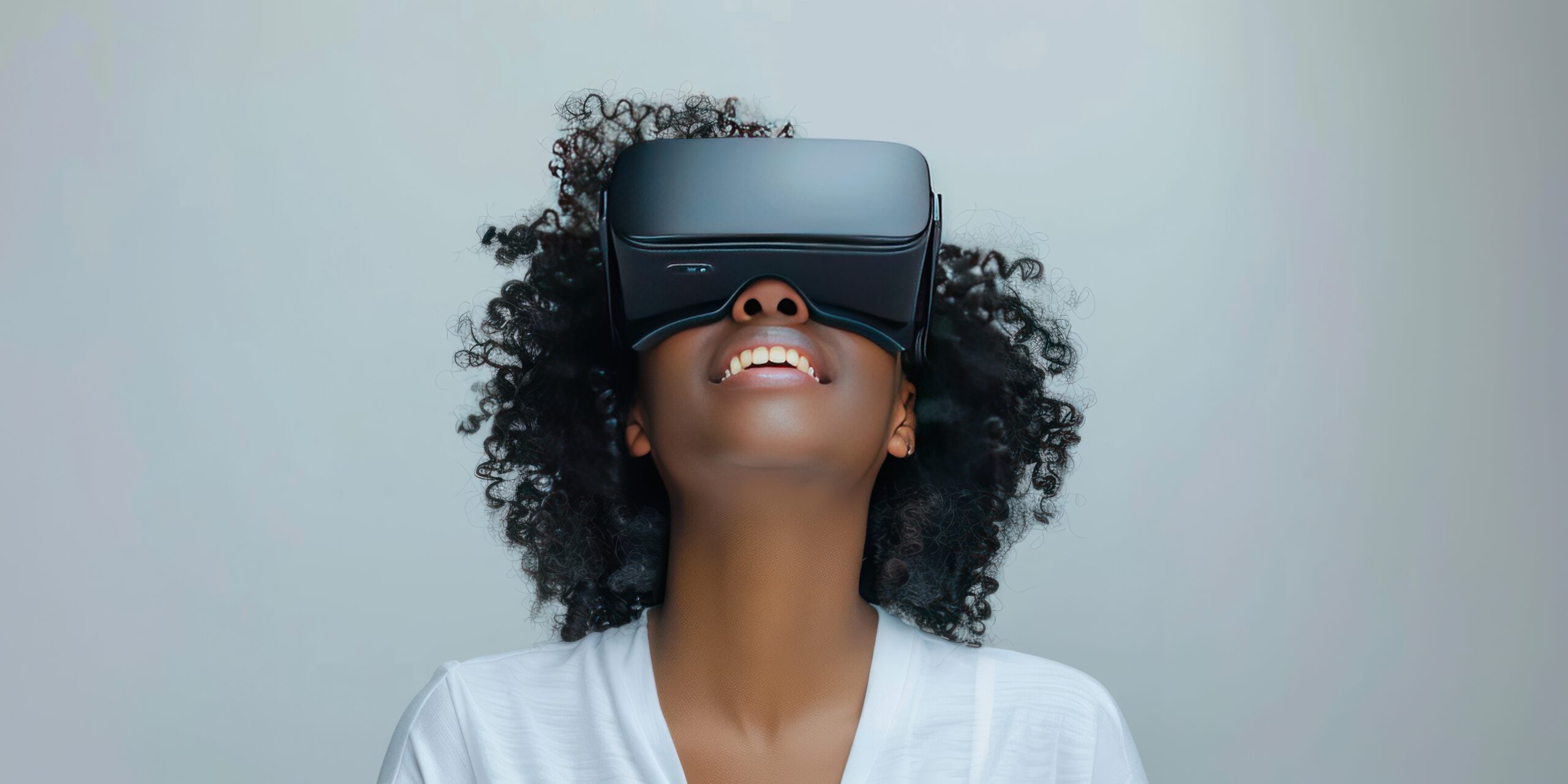latest
Virtual reality could be effective in treating depression, study finds
Researchers compared a real-world behavioural intervention with the same intervention delivered through a virtual world
“These results indicate that XR may help to de-stigmatise mental healthcare and reduce barriers to individuals seeking care. Clinicians could use XR as a treatment tool to help motivate clients to actively participate in their psychotherapy treatment by completing ‘homework’ that is novel, fun, and accessible.” Dr Margot Paul, clinical assistant professor, Stanford University
Virtual reality (VR) shows promise as a treatment for major depressive disorder (MDD), according to the findings of a new study.
The research, led by Dr Kim Bullock and Dr Margot Paul of Stanford University, was published in JMIR Mental Health. It looked at the use of extended reality-enhanced behavioural activation (XR-BA) in easing symptoms of depression. XR takes in a variety of immersive technologies that involve computer-generated environments blending physical and digital worlds.
Bullock, a clinical professor of psychiatry and behavioural sciences at Stanford, explained what led to the decision to investigate VR as a potential treatment: “Depression impacts so many people right now, and we thought VR could have a large impact. There can be significant barriers to behavioural activation in some patients — they might be stuck in a hospital bed, or not have the means to access joyful activities or the motivation to leave their house. We started wondering whether simulated, pleasant activities might be a good first step for some people.”
The research team conducted a randomised controlled trial among 26 outpatients with MDD who were receiving remote care. Of the 26, a control group of 13 patients received traditional behavioural activation (BA), a simple and evidence-based psychotherapy that involves encouraging people to take part in enjoyable activities such as going outside, exercising, socialising or volunteering.
The other 13 participants, however, used a VR Meta Quest 2 headset to engage in simulated pleasant or mastery activities, including playing a magical VR board game, deciphering clues to solve puzzles, dancing to music, touring foreign cities and playing mini golf alone or with friends.
Behavioural activation homework
All the participants – adults diagnosed with MDD who had not recently changed medications – met weekly with a clinical psychologist at Stanford who assigned them behavioural activation homework between sessions, scheduling and committing to at least four pleasurable activities each week, either in virtual reality or real life.The researchers found that XR-BTA reduced the severity of depression in a significant way, as measured by the Patient Health Questionnaire–9. The results were comparable to traditional behavioural activation delivered via telehealth. In other words, taking part in activities in a virtual world was just as effective as taking part in activities in real life. Not only did the patients experience a reduction in depression symptoms, however, they found the treatment more enjoyable than conventional therapy.
No adverse events were reported in either group, and there were no substantial differences in dropout rates or homework completion.
The findings suggest that individuals in the XR-BA group might have experienced a heightened placebo response because of the novelty of the technology and implicit beliefs regarding mental health treatment.
“These results indicate that XR may help to de-stigmatise mental healthcare and reduce barriers to individuals seeking care,” Paul said. “Clinicians could use XR as a treatment tool to help motivate clients to actively participate in their psychotherapy treatment by completing ‘homework’ that is novel, fun, and accessible.”
The study suggests that VR, in particular XR-BA, has the potential to revolutionise depression treatment. It could help address the barriers to accessing evidence-based psychotherapies for MDD, enabling more people with the condition to receive treatment. Worldwide, millions of people experience MDD and many are unable to afford therapeutic treatment.
“This study confirmed previous findings that XR-BA may be a feasible, non-inferior, and acceptable enhancement to traditional BA,” the researchers wrote. “Additionally, there was evidence that supports the potential of XR to enhance expectation or placebo effects. Further research is needed to examine the potential of XR to improve access, outcomes, and barriers to MDD care.”
FCC Insight
Although this is a small study, the results are promising. Encouraging people with depression to engage in enjoyable activities such as exercise or dancing has proven to be an effective treatment – but for many people these are not practical options. It makes sense, therefore, to see if the treatment still works if people engage in it through a virtual world rather than in the real world. The researchers found that the virtual-world treatment was just as effective as the real-world one, and there may have been an additional placebo benefit from the novelty of using VR technology. It’s possible, of course, that once VR is more familiar, the benefits will be less pronounced, but at the moment, the potential VR offers to treat a much larger group of people with depression is to be welcomed.
